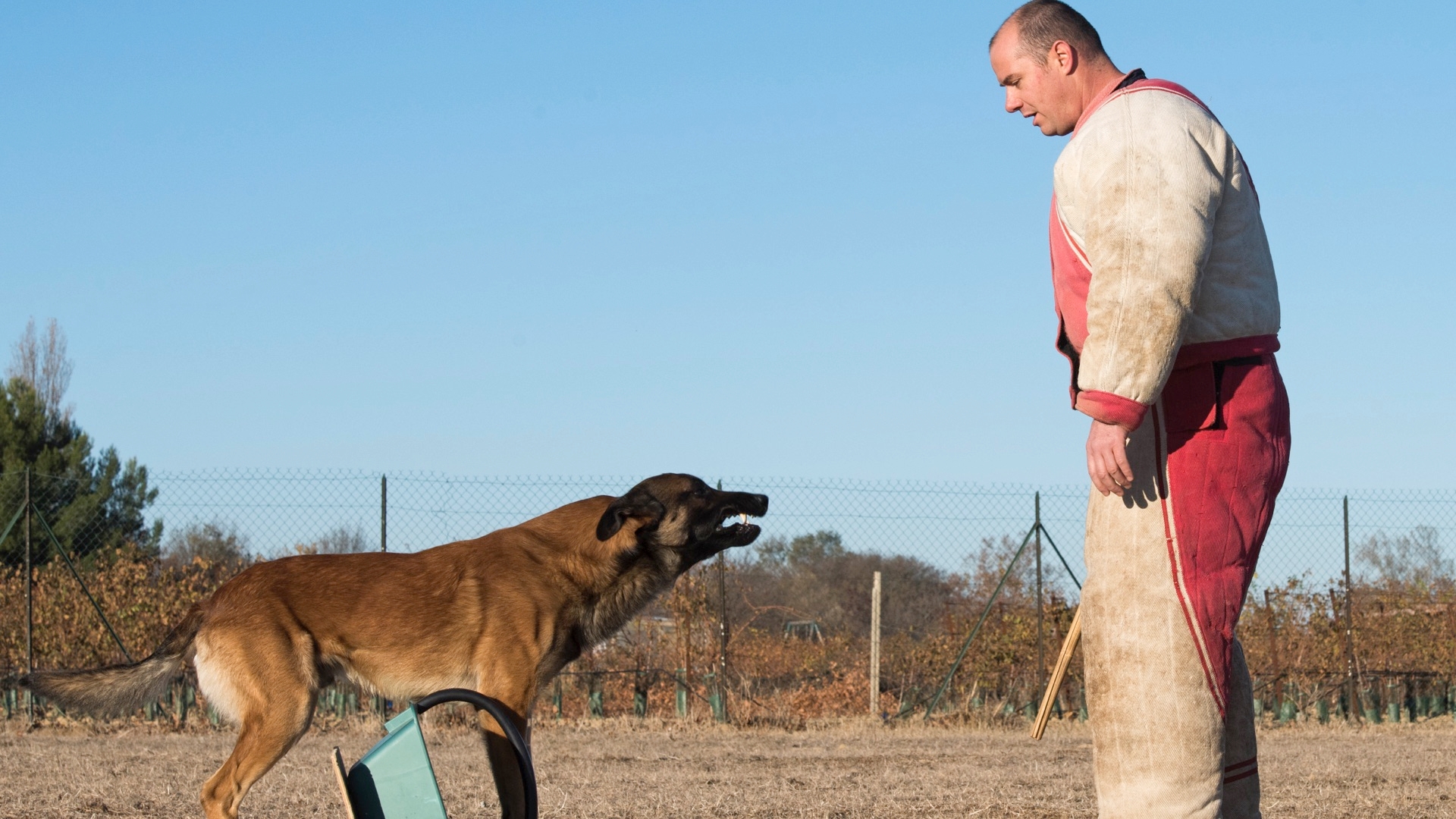CIA's Top Ten (10) Dog Training Tips:
Part Two (2)
Summary:
This article continues the top 10 tips from our CIA K-9 trainers that we hope you'll find useful, as well as some examples highlighting how these methods are used to teach some of the best explosives detection dogs in the world.
Continued From
Introduce challenges
Once your dog learns the new command or behavior you want to teach her, introduce distractions to help her learn to differentiate between the wanted behavior (for example, sitting at the front door) and unwanted behavior (bolting outside as soon as the front door opens).
The distractions can include things that will temp your dog or provide an obstacle to the wanted behavior. (Maybe have someone ring the doorbell or have someone with another dog standing outside when you open the door).
By doing so, you can desensitize your dog to specific distractions and reinforce the desired behavior.
For our explosives detection dogs, we introduce "distractors" — the stuff you don't want the dogs to indicate on — which consist of all kinds of smells they'll come into contact with either on a daily basis or during the course of their work.
Our K-9s are exposed to hundreds of different distractors, including things like dish soap, baking soda, and cheese-doodles.
Consistency is key
One of the biggest mistakes people make when training their dog is to teach the dog something and then abandon the training plan. Dogs will pick up on inconsistencies in training and take advantage of them.
Stay consistent with your commands, training schedule, and methodology. Even something as simple as changing a command from "sit" to "sit down" can cause confusion while training.
Familiarization and repetition are key factors in a dog learning new behaviors.
By staying consistent, once our K-9 trainers teach the pups the initial concept of "seeking" a scent, they can imprint a dog with a new odor in five minutes.
After about a month of training, the pups will be able to learn and remember 18 new explosive scents in a single week!
Take breaks
Some training sessions will go exceptionally well, while others can be rocky. It's okay to take a break and return to the task if either you or your dog gets frustrated. Both dogs and trainers need down time, and taking breaks with your dog is as important as the time you spend training.
During the initial imprinting class for the new CIA K-9 pups, they work in short 15-minute sessions throughout the day, with lots of breaks in between. Sometimes they rest in their crates, other times they go outside to expend some energy and just be dogs. Some days, at the end of class, the pups will get free time to just romp around and play together.
By taking breaks, the dogs are able to better focus during training sessions, which in turn makes those sessions more productive and fun.
Utilize your dog's natural energy level
A dog's energy will fluctuate throughout the day, but each dog has a natural base energy level.
Some dogs are extremely hyper (think of a ball-obsessive Border Collie who can play fetch for hours and then go for a 10-mile jog) while others are couch potatoes.
Whatever your dog's natural energy level is, utilize that for training. A hyper-active dog is going to need more stimulation and exercise, and perhaps taking him or her out for a run or to play fetch before a training session will help your dog focus when it's time to learn.
Along the same line, if you want to pursue activities or jobs with your dog, take into account your dog's personality and energy level.
For example, when evaluating potential puppies for our explosive detection dogs, the trainers look for drive and energy that is hard to shut down. The dog needs to be able to adapt to a constantly changing schedule and environment, and a high energy dog that is always "on" tends to cope best in those situations.
On the flip side, a therapy dog needs to stay calm and consistent in a variety of circumstances, so a high-energy, hyper-active dog may not be the best choice.
Always end on a positive
If a mistake happens during training, or you or your dog get frustrated, it's okay to stop the session early. Just be sure to end the lesson on a positive note.
Even if it's an easy win (something you know your dog will succeed at) it's important to finish with both you and your dog feeling good. That way, you'll both be excited and look forward to your next training session.


